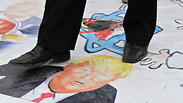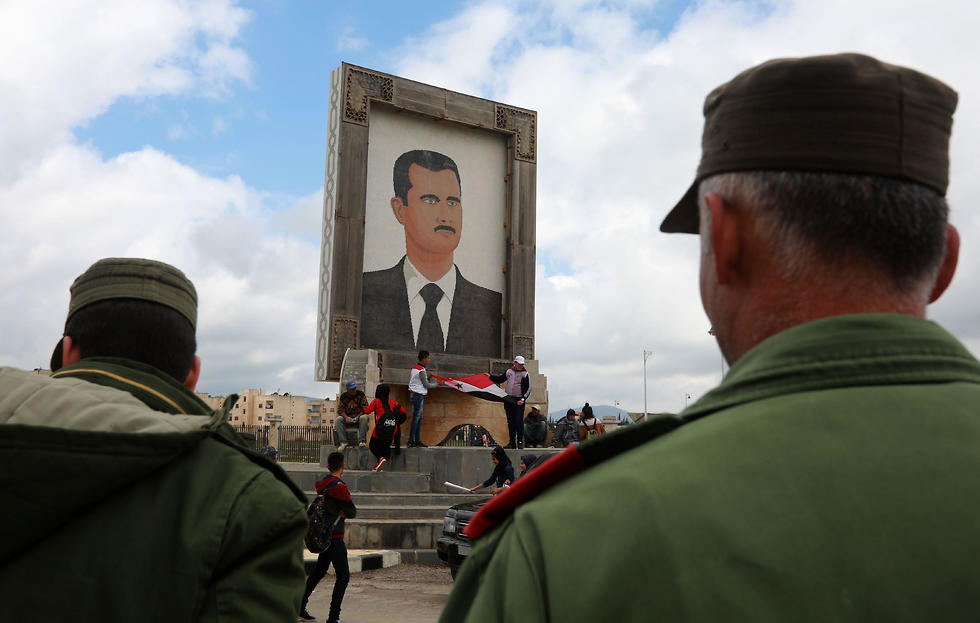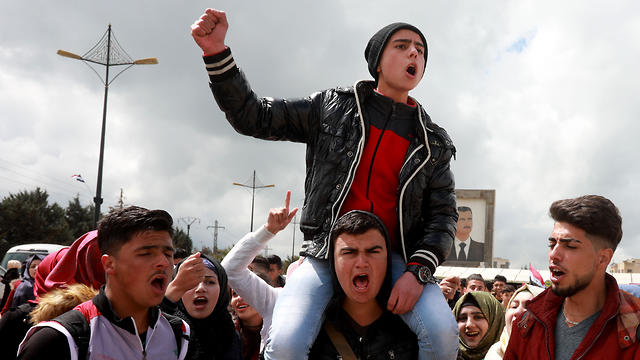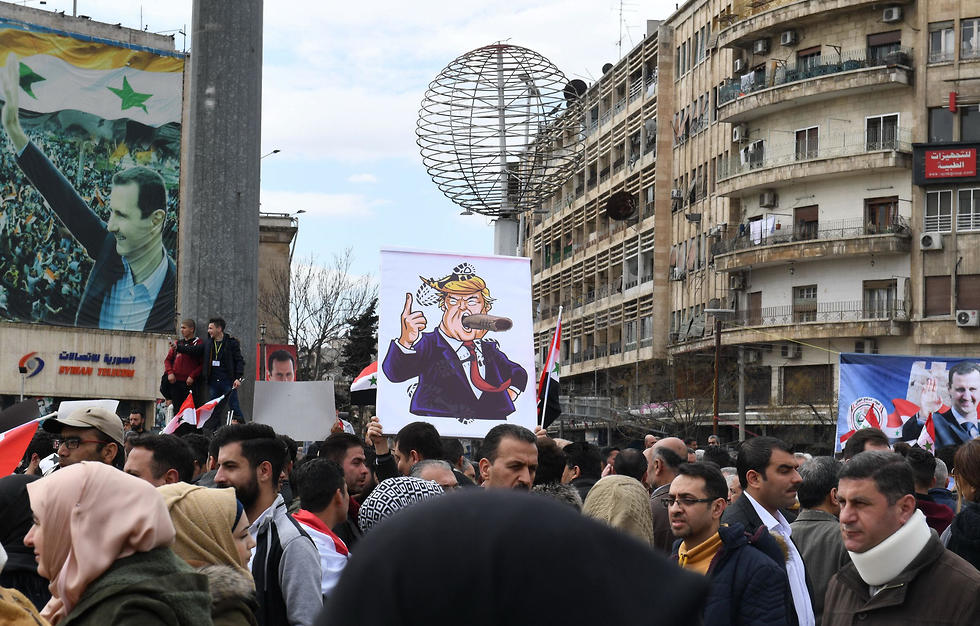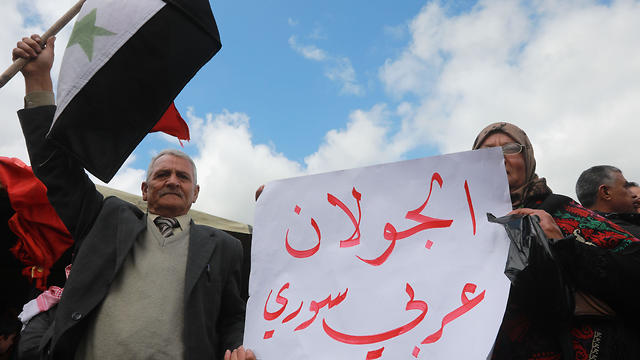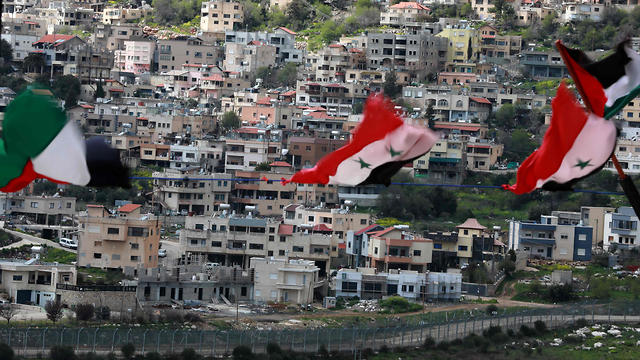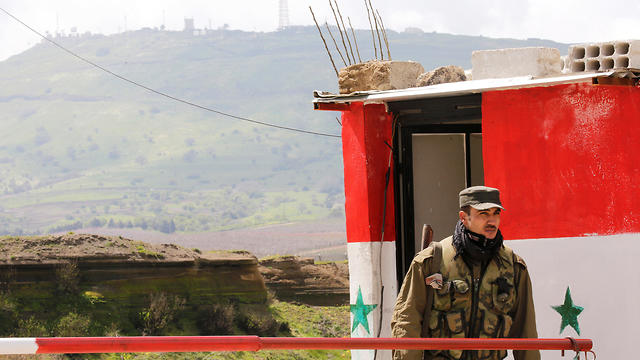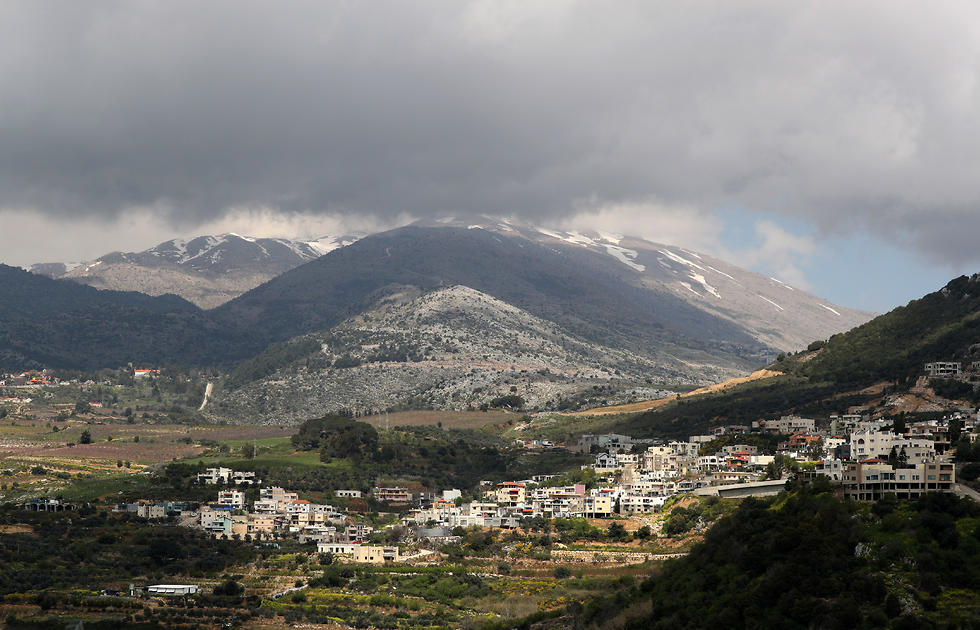Thousands of Syrians gathered Tuesday in different cities to protest President Donald Trump's formal recognition of Israel's sovereignty over the Golan Heights, a move that sparked widespread international condemnation, including from a number of U.S. allies.
Syria's State news agency SANA posted photographs of a march in the southern city of Sweida on Tuesday, in which men and women carried Syrian and Palestinian flags and banners reading "Golan is Syrian." SANA said other protests took place in the southern city of Daraa, about 20 kilometers (13 miles) from the Golan Heights.
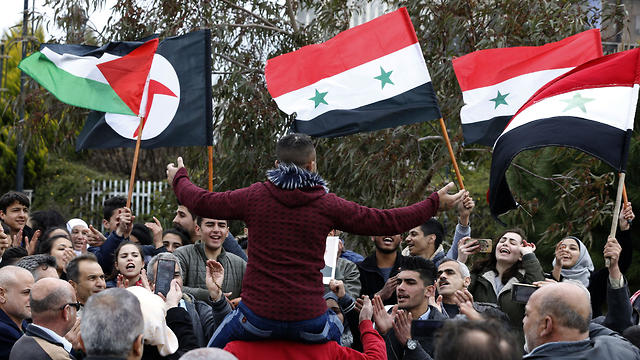
Mona Ibrahim, a civil servant, said in Damascus that the Golan "will return to Syria no matter how long it takes. Trump's decision is worthless."
Syria slammed the U.S. step as "blatant aggression." The Foreign Ministry said Trump's move represented the "highest level of contempt for international legitimacy" and showed that Washington was "the main enemy" of Arabs.
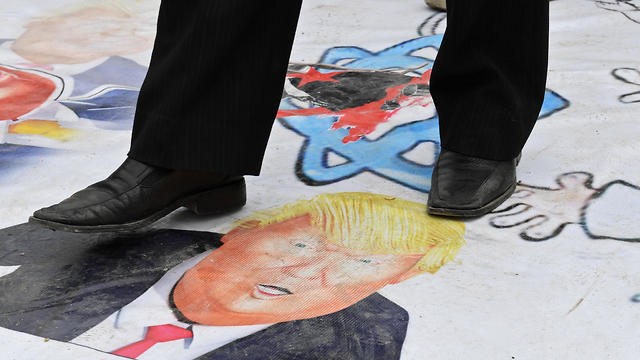
The leader of Lebanon's Hezbollah militant group said the decision proves that "resistance" is the only way to retake lands occupied by Israel and that the "great Satan" -- the United States -- cannot sponsor the "so-called peace process."
Hassan Nasrallah, whose group has sent thousands of fighters to support Syrian President Bashar Assad in the civil war, said in a speech in Beirut that the muted response of Arab countries to Trump's recognition of Jerusalem as the capital of Israel last year encouraged a similar declaration on the Golan.
On Tuesday, the 57-member Organization of Islamic Cooperation condemned Trump's decision on the Golan, saying it legitimatized Israeli occupation in violation of international law. It added in a statement that the decision does not change the fact that the Golan Heights "is Arab and Syrian occupied land."
Iraq's Foreign Minister Mohamed Alhakim said the "Golan is occupied Syrian land and its sovereignty must fully return to Syria" in accordance with Security Council resolutions.
Gulf Arab states, including U.S. allies that view Iran as a regional menace and supported the uprising against Assad, also denounced the U.S. move.
Saudi Arabia, the United Arab Emirates, Qatar, Kuwait and Bahrain were just some of the Arab countries that condemned the move on Tuesday in official statements. But Gulf states were unlikely to take steps to pressure Trump over the decision. Saudi rulers have welcomed Trump's tough talk and pressure against rival Iran.
Saudi Arabia said the U.S. decision will have "significant negative effects" on the Middle East peace process and stability in the region.
Ambassadors from the five EU members of the U.N. Security Council -- France, Germany, Britain, Poland and Belgium -- issued a joint statement saying that they don't recognize Israel's sovereignty over the Golan Heights, which Israel captured in 1967.
"Annexation of territory by force is prohibited under international law," and any unilateral border changes go against "the rules-based international order and the U.N. Charter," they said.
"We raise our strong concerns about broader consequences of recognizing illegal annexation and also about the broader regional consequences," they said. All five countries are close U.S. allies.
Trump formally signed the proclamation alongside Israeli Prime Minister Benjamin Netanyahu on Monday, reversing more than a half-century of U.S. policy in the Middle East. The U.S. is the first country to recognize Israel's sovereignty over the Golan, which the rest of the international community regards as occupied territory.
Israel has long argued that the strategically important area has, for all practical purposes, been fully integrated into Israel since it was captured from Syria in the 1967 Six Day War and that control of the strategic plateau is needed as protection from Iran and its allies in Syria. Israel annexed the plateau in 1981.













